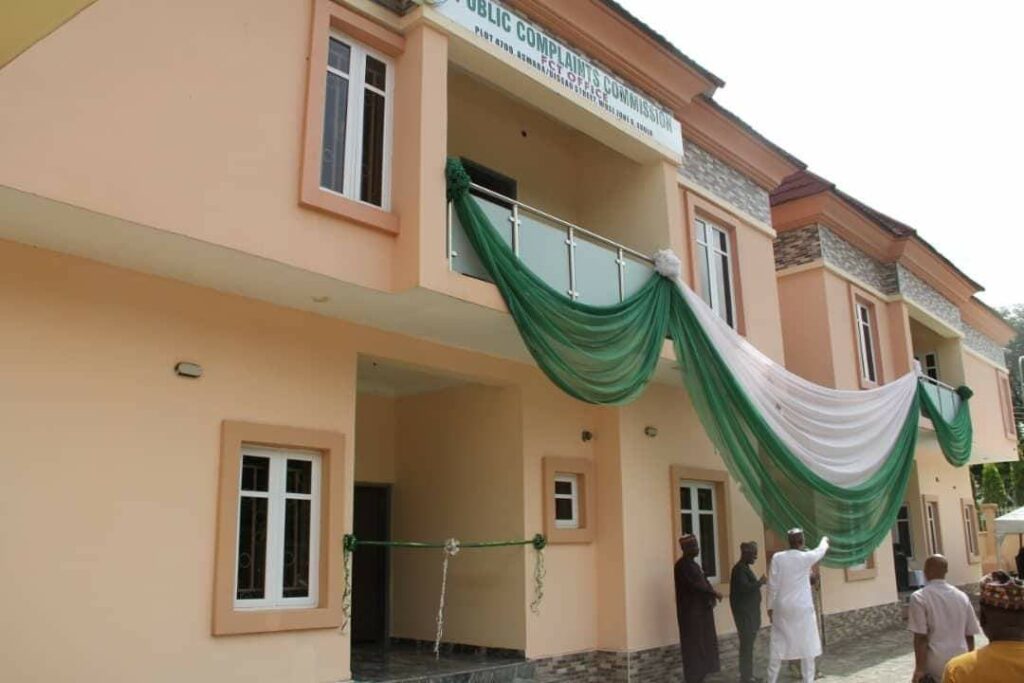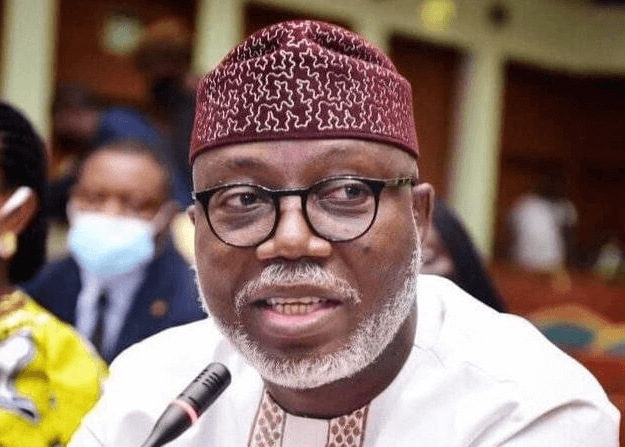For many years now, frustrations could best be described as the experience of litigants as cases in court suffer several adjournments.
There are appeals pending at the Supreme Court that have been fixed for 2028, that’s about five year away from now. No thanks to ineffective Alternative Dispute Resolution, ADR, mechanism in the country.
The Chief Justice of Nigeria (CJN), Justice Olukayode Ariwoola, bemoaned how the Supreme Court is grappling with 6,884 delayed cases.
According to the National Judicial Council (NJC), the judiciary’s regulatory body, only 1,179 judges are available for the courts across the country with an estimated population of 218 million people.
As a result, many cases drag in the courts with some files being called up for the first time after 10 years.
A senior staff of the Supreme Court told LEADERSHIP SUNDAY that many appeals filed in 2006 were being heard for the first time in 2023.
According to him, recommendations of committees in the past for special courts to expeditiously handle some cases, like criminal and corruption cases, had not been implemented.
The Public Complaint Commission, PCC, an Ombudsman in Nigeria, is supposed to wade in, in resolving disputes between parties but for many years now, it has not lived up to that responsibilities, as a matter of fact, many Nigerians do not know, if the organisation still exist or not.
The PCC is a neutral third party that facilitates the resolution of disputes between two parties. They are considered to be an alternative dispute resolution mechanism, which means that they offer an alternative to the traditional court system.
 The PCC may help to resolve issues between parties through various types of informal mediation. Identifies new issues and opportunities for systemic change for the organization.
The PCC may help to resolve issues between parties through various types of informal mediation. Identifies new issues and opportunities for systemic change for the organization.
It is an agency of the federal government of Nigeria under the Presidency which acts as an Ombudsman that receives complaints of the citizenry against the government or private institutions/organization or their officials and wades in to settle issues.
The unique positioning of the ombudsman serves to provide unfiltered information that can produce insight to issues and resolutions.
With the new leadership of the PCC, it is hoped that there would be a respite for litigants and the days of their frustration with their experiences in court would be over.
With renewed vigour and progressive ideals, incumbent Chief Commissioner of the Public Complaints Commission (PCC), Honorable Abimbola Ayo-Yusuf, is effectively embodying the vision of President Bola Ahmed Tinubu led administration and the principles of patriotic, people-centered governance.
For the first time in its history, the Nigeria Ombudsman, the Public Complaints Commission (PCC), was granted election observer status during the election that ushered in the administration of President Bola Ahmed Tinubu. Under the leadership of Ayo-Yusuf, this people-centred proactive involvement in deepening our democracy marks a significant milestone, establishing the PCC as a vital stakeholder, not just in electoral matters but also in all that concerns the present and the future of Nigerian citizens in an evolving democratic space.
Established on October 16, 1975 by the then military regime of Murtala – Obasanjo on the recommendation of the Udoji panel of inquiry vested with the powers to investigate and resolve any form of injustice arising from administrative errors, abuse of power and office by government officials or private establishments in Nigeria, the Public Complaints Commission (PCC) stands as a sentinel against administrative excesses and legal abuses, serving as a vital organ of the Nigerian government.
The organisation is dedicated to addressing grievances brought forth by citizens or residents who have suffered administrative injustices.
Many believed the PCC has not been heard for so many years despite the huge responsibilities it has to resolve issues but upon LEADERSHIP Sunday enquiry, Hon. Ayo-Yusuf said since 2021 when the new leadership came into office, it has been championing social justice and offers a robust avenue for individuals seeking redress from the errors, omissions, or abuses perpetrated by government officials or private entities.
According to him, this institution ensures that Nigerians, and all residents, have a reliable mechanism to challenge and rectify bureaucratic wrongs.
He further told our Correspondent that beyond actualising redress, the PCC now plays an increasingly crucial role in enhancing public administration as it meticulously reviews and recommends improvements to laws, procedures, practices, rules, regulations, and the standard conduct of officials, as outlined in the ACT, CAP 37 LFN 2004.
It is sad enough that many Nigerians do not even know their rights and if they lack the knowlege of their rights, how do they enforce it. Apart from knowing their rights and enforcing it, many Nigerians do not even know the primary functions and responsibilities of the PCC and this is where relevant government agencies should step in to create awareness among Nigerians on the agencies they could approach in place of litigations in court where they will suffer several adjournments, which could be frustrating.
“At its core, the PCC’s primary function is to conduct unbiased investigations on behalf of those wronged by government actions or inactions, or by private companies and the Commission operates independently of government bureaucracy, wielding significant powers to ensure confidentiality and access to all pertinent government information. As a bulwark against excesses in high places, it compels the production of documents necessary for thorough investigations and enforces compliance to secure essential information. This autonomy and authority underpin the PCC’s commitment to justice and accountability in the process of quiet but effective renewal of citizens’ hope in Nigeria.
“Since its establishment, the PCC has quietly investigated and successfully handled hundreds of thousands of complaints that have been brought before it by Nigerians and residents in Nigeria. Living up to its mission statement of restoring dignity of man through the enthronement of rule of law and the protection of the individual and organization against administrative injustice. The PCC has since inception been promoting effective and efficient services that is responsible to the needs of the citizenry through proactive investigation and resolution of complaints against various levels of government such as the Federal, State and Local Governments, including Public Corporations, Private Sector Organizations and their officials.
“With its core mandate such as to investigate and conduct research in Ministries, Departments and Agencies of Government, private companies and officials of these bodies; investigate administrative procedures of any court of law in Nigeria; report crimes in the course or after investigation; report any erring officer for disciplinary action; report, interpret policies of government and advise government and companies; to make public, reports and after investigation; have access to all information and make recommendation, especially after proactive investigation, PCC, has no doubt given and has continued to give Nigerians better and qualitative service delivery. Even more under the President Bola Ahmed Tinubu renewed hope agenda”, he said.
It is a common thing for every government institution to complain inadequacy of statutory budgetary allocations but according to the Chief Commissioner of the PCC, that has not hindered his commitment towards putting the Public Complaints Commission on the pedestal of success in the effective service delivery to Nigerians and even, non-citizens resident in Nigeria.
A quick look at the record of the organisation shows that PCC discharged its statutory role to enhance peace and development. For instance, between July 2021 and October 2022 alone, the Commission received 34,000 complaints out of which 13,000 were resolved.
In about a year later, PCC was again, inundated with not less than 258, 780 complaints from members of the public, aside from cases initiated by the commission to address systemic issues in Ministries, Departments and Agencies (MDAs) and the private sector. About 170, 000 of such cases were successfully resolved.
Apart from just looking into complaints of parties before it, notably, the PCC has also successfully engaged various authorities on issues that include various infractions and poor service delivery as well as complex issues surrounding the administration of budgeted ecological funds across the entire thirty-six states of the federation.
For enhanced productivity, the recent creation of the Complaints Lounge and Call Centre by the PCC can be said to be all about bringing the Commission closer to the people. “It is worthy of note that the PCC is dedicated to serving the public in the best possible means. Hence, the establishment of a Complaint Lounge popularly known as Call Centre. Undeniably, call centres create valuable interactions that build and facilitate feedback communication, trust and confidence between the governed and the government”, he said.

 4 months ago
8
4 months ago
8

![NAFDAC seals warehouse with expired products in Benue [PHOTOS]](https://dailypost.ng/wp-content/uploads/2024/11/20241115_200909-225x300.jpg)













 English (US) ·
English (US) ·